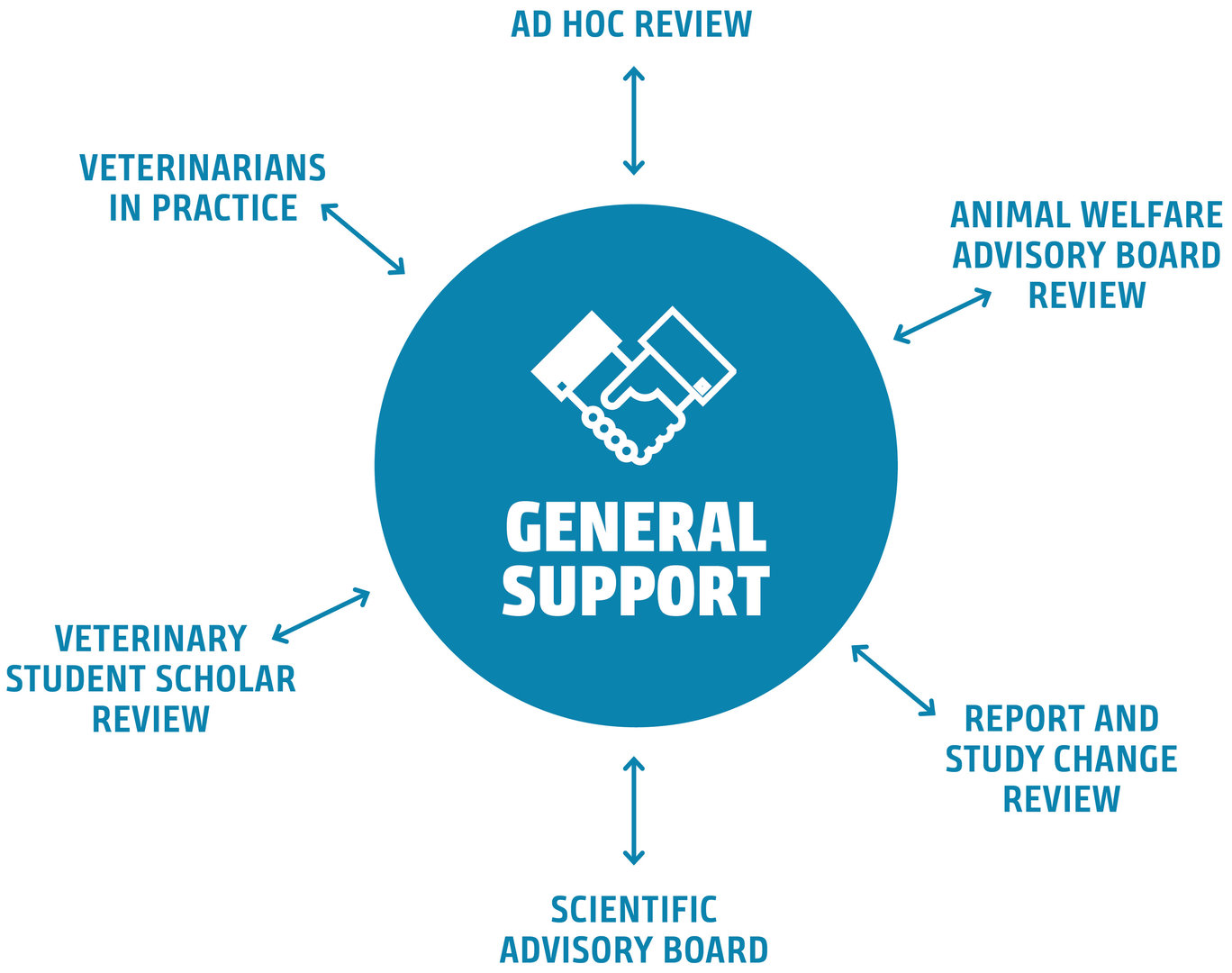AVAILABLE ASSIGNMENTS
-
SCIENTIFIC ADVISORY BOARD MEMBER:
Scientific Advisory Board (SAB) members provide technical and feasibility review for proposals submitted in response to a specific Request for Proposals (RFP). Written comments are shared with applicants and numerical scores are submitted that contribute to the overall proposal ranking.
Traditional RFPs (canine, feline, equid and wildlife) historically attract the largest numbers of proposals. SAB reviewers may be asked to provide primary review for up to five proposals and secondary review for up to an additional five proposals. Traditional SAB meetings are conducted remotely (via Zoom) and may take up to 15 hours over two days. Other RFPs hosted by the Foundation typically involve review of fewer proposals, and meetings usually are completed in eight hours or less.
-
AD HOC REVIEWER:
The Foundation uses ad hoc reviewers when a specific area of expertise is not represented on a Scientific Advisory Board. Ad hoc reviewers typically review one to three proposals and join the SAB review meeting for 15 minutes per proposal.
-
ANIMAL WELFARE ADVISORY BOARD REVIEWER:
The Animal Welfare Advisory Board (AWAB) is comprised of behavioral, welfare and ethical experts who review all proposals recommended for funding, paying specific attention to the justification for animal use. Review by AWAB ensures all Foundation-funded studies adhere to the Foundation’s Health Study Policy for Animals Involved in Research.
-
VETERINARIANS:
We welcome veterinarians from primary care or specialist practice to attend SAB review meetings and contribute to the discussion regarding the clinical relevance of the proposals being considered.
-
VETERINARY STUDENT SCHOLARS REVIEWER:
Veterinary Student Scholars (VSS) is a competitive program that provides veterinary students a stipend to participate in mentored research advancing the health and well-being of dogs, cats, equids and wildlife. The VSS committee is responsible for reviewing VSS applications annually and providing that information to the Foundation. There is no SAB meeting for VSS proposals.
-
GRANTEE PROGRESS REPORT AND STUDY CHANGE REVIEWER:
Scientific reviewers support the Foundation’s programs by assessing progress reports from grantees and by evaluating requests for study changes on an ongoing basis.
|

